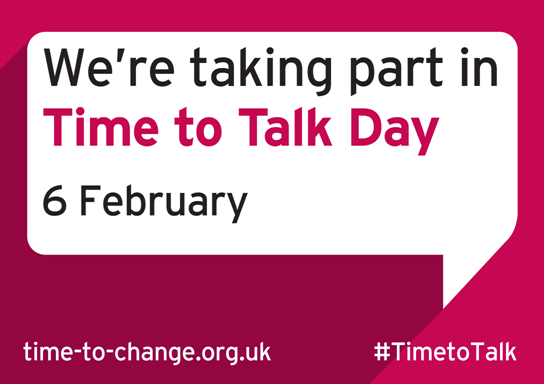Today is Time to Talk Day and to support and celebrate that we have a guest blog from a mental health service user. 'Herre' explains here how dialogue on an anonymous feedback platform helps service users like her.
I am not someone who normally participates in feedback or telling my story to an audience, and have many reasons not to. Not so long ago, it was my cynical view that such exercises were tokenistic, an attempt to subdue criticism or obtain compliments: participation would be as efficacious as shouting my concerns at a brick wall. Furthermore, chronic issues with my confidence self-esteem and body-image preclude anything I would consider to be ‘going public’. Add to this my suspicion that any criticism of the NHS would be utilized by those with a political agenda, and you get an unlikely candidate for using sites like Patient Opinion and it is with some amusement that I find myself writing this piece.
Throughout 2012 I had a series of very negative experiences in trying to access support for my worsening mental health and the physical symptoms related to this. Details of this can be found on the Patient Opinion website at https://www.patientopinion.org.uk/opinions/82035 so I will not repeat them here, but I will reiterate the sense of despondency and hopelessness that I was left with. Asking for help had been difficult and although my expectations were not high, they were not met and the process felt futile and embarrassing.
Patient Opinion was recommended to me by someone whose opinion I trust and respect so, despite my skepticism I agreed to look at it (at the very least, as an outlet for my frustrations). I was encouraged by the fact that that each case appeared as a conversation rather than a one-way process and that the layout made it simple to complete. Having the time and space allowed me to reflect and write a considered account of my experiences, with thought for the consequences or outcomes. Anonymity allowed me to be open and honest about personal issues, but also to be more direct. A face-to-face scenario would have, at that initial stage, been too confrontational for me: I know from experience that it results in either shy submission or vitriolic outbursts, and a failure to move towards a positive outcome. As you can see from my case, the outcomes were indeed positive and I have felt empowered by the process. It has given me more confidence in discussing my care plan and I feel listened to. This would not have occurred without the initial contact being anonymous and virtual.
Disclosure and honesty is of upmost importance if feedback is going to be purposeful and worth obtaining. The obstacles to achieving this are high and exacerbated further when the subject being discussed is considered taboo, embarrassing or likely to attract stigma. Mental Health issues are a prime example of this, and I have come across many people who have felt the need to hide their difficulties or not speak out as a result of the reaction (or perceived reaction) to disclosure. Their silence denies them the assistance they need and are entitled to, but also has consequences for healthcare services.
Service-users/patients are a vital resource in improving the processes of care, and to the quality of outcomes. This requires a two-way process that overcomes any obstacles to engagement. Where people become unengaged, passive recipients of treatment, an opportunity is lost for that individual and for the future of care provision.
Anonymity allowed me to be open and honest about personal issues
Anonymity allowed me to be open and honest about personal issues https://careopinionuk-staging.azurewebsites.net../../resources/timetotalk.png Care Opinion 0114 281 6256 https://www.careopinion.org.uk /content/uk/logos/co-header-logo-2020-default.pngUpdate from Care Opinion
Posted by Patient Opinion, on
Response from Mr Anderson on 6 Feb 2014 at 14:45
What a great message this is and, although not a survivor of mental health services, I can identify with the need to express oneself as a service user and a patient and it was this that also brought me to Patient Opinion (PO).
The anonymity feature of PO I can see is vital to many, especially those mental health service survivors who, because of the general prejudices expressed about mental health issues, are unable to talk openly about their experiences.
Of equal resonance for me was just the notion of having somewhere to get my voice heard by using Patient Opinion. As a younger disabled person with a physical impairment I think a lot of assumptions are made about younger disabled people who are sometimes perceived to have super strength coping mechanisms that deal with the barriers thrown up at them.
For me this is still very much the case where I felt my voice was not being heard as a patient. PO allowed me to be put me at the centre of my care and the conversations taking place around my care.
I really, really hope that Patient Opinion, and Care Opinion in the field of social care and independent living, continue to enjoy the support of service users like ‘Herre’ and health professionals like Guy at Leeds and York Partnership NHS Foundation Trust and Tobias from LTH who show that an holistic, person centred approach to care can help break down barriers to people with mental health problems, help improve their treatment and outcomes and also stop the stigma associated with mental health and other conditions.
Thanks ‘Herre’ for sharing your story, the responses from LTH and Guy Brooks help give me encouragement to keep talking openly to those helping provide my health and care services.

